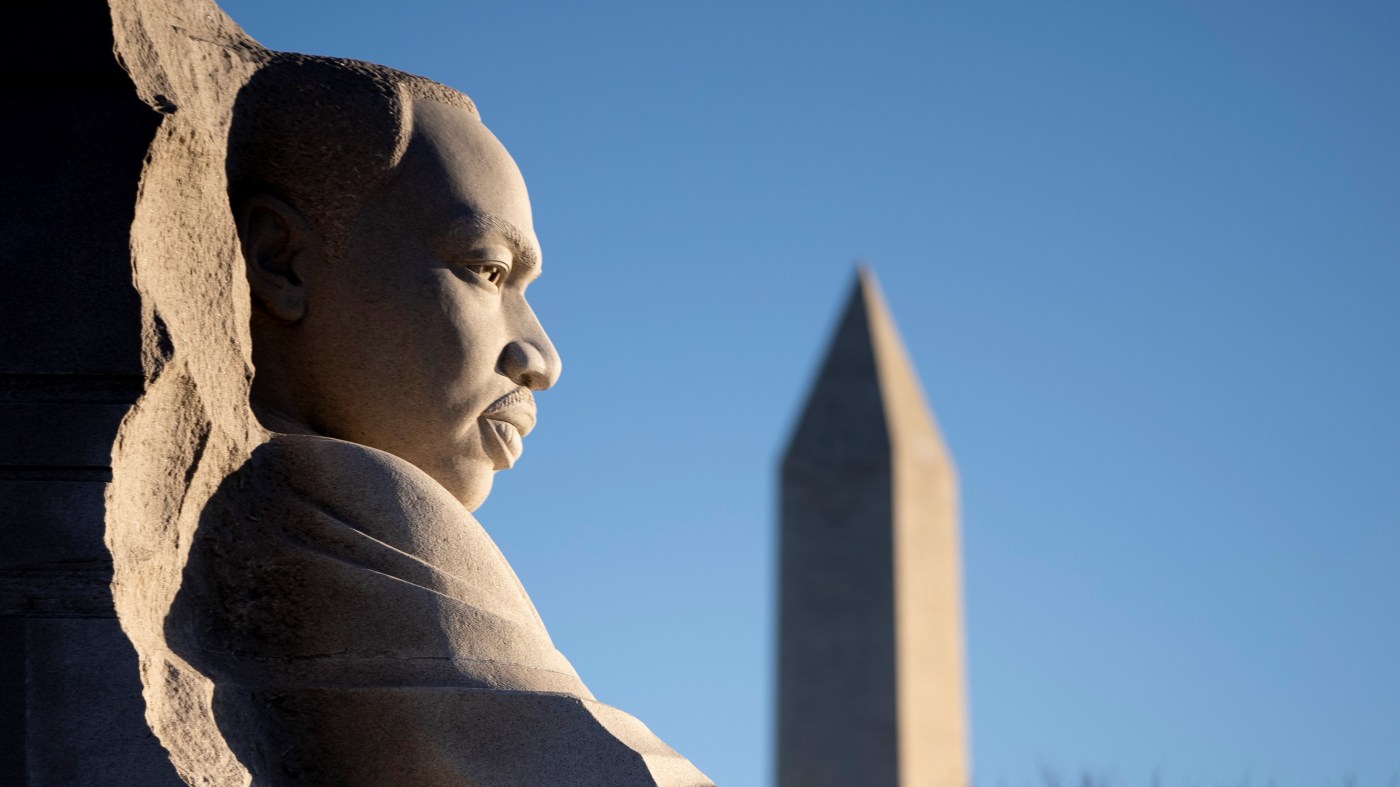
MLK Day: 19-year-old author discusses importance of Black girls being represented in school curriculum
At the age of 11, Marley Dias was taken aback to see the lack of books featuring Black females on her school’s required reading list. She soon launched a book drive of sorts — #1000BlackGirls — aimed at collecting 1,000 books with Black girls as the central character in order to donate them to schools nationwide.
The effort, which drew worldwide media attention, evolved into a literacy campaign that far surpassed its initial goal, drawing some 14,000 copies of more than 1,000 titles. It serves as the basis of her own book, which she wrote in seventh and eighth grade, “Marley Dias Gets It Done: And So Can You!,” and helped land her in 2018 on the “Forbes Under 30” list.
In 2020, she served as host of the Netflix series “Bookmarks,” which features celebrities reading children’s books that center Black characters.
Dias, now 19 and a student at Harvard University, took the podium Monday as the youngest keynote speaker to ever grace the stage of the Dr. Martin Luther King Jr. Holiday Breakfast in Minneapolis. The event, in its 34th year, is hosted annually by General Mills and the UNCF (United Negro College Fund) at the Minneapolis Convention Center.
Not reflected in curriculum
Even as a child, Dias said, she understood that Black girls who didn’t see themselves reflected in their own school curriculum “didn’t have the words” to advocate for their own inclusion.
“We just didn’t hear people speaking up about it,” she said. “We have spent our whole lives reading about people who don’t look like us.”
As a young adult, she’s become equally disheartened by organized efforts to ban books from libraries and limit the teaching of Black history — especially lessons about slavery and civil rights — in schools.
“But now we see there’s a concerted effort to erase Black people … instead of creating and curating learning environments where people can explore their own identities,” she said.
America, she said, hasn’t fully embraced the idea that inclusion of women, people of color and the LGBTQ community should have happened from its inception.
“We treat (inclusion) like it’s a cookie to treat oppressed groups, instead of a right,” she said later.
“Read more,” she urged her young peers. “Educate yourself more. And that education won’t be done on your phone. That education will be done with elders. That education will be done with books.”
She also called for civil debate and engagement with people who have different perspectives: “Approach these things with grace.”
Youth activism
Dias was interviewed by Yohuru Williams, a university chair and professor of history and founding director of the Racial Justice Initiative at the University of St. Thomas. Emphasizing the power of youth activism, he noted King began his civil rights activism when he was 15.
Williams, a contributor to the History Channel, said that satisfied that their work was done, many civil rights activists left the movement after lightning rod characters like Birmingham Commissioner of Public Safety Eugene “Bull” Connor were voted out of office. Four years after the murder of George Floyd, a Black man in Minneapolis killed by a Minneapolis police officer, Williams said some of the resulting focus on racial inequities is slowing.
“I fear … that that momentum is dying,” said Williams, calling for young people and others to re-engage.
King, a Baptist minister who was born Jan. 15, 1929, grew up in the deeply segregated south and, as president of the Southern Christian Leadership Conference, rose to become the nation’s most widely-recognized civil rights leader. He was assassinated on the balcony of his motel room in Memphis, Tenn. on April 4, 1968.
MLK Day, celebrated on the third Monday in January, has been observed as a federal holiday since 1986.
Later Monday morning, Gov. Tim Walz and Lt. Gov. Peggy Flanagan were scheduled to deliver remarks at the Martin Luther King Jr. Holiday Celebration at the Ordway Center for the Performing Arts in St. Paul.
The event, which featured a panel discussion with Minnesota entrepreneurs Houston White, Jr. and Caroline A. Wanga, chief executive officer of Essence Communications, was briefly interrupted by shouting and chanting from protesters, who demanded that the governor take a stand against “genocide” as a youth choir took the stage.
In light of Israeli military strikes on Gaza following the Hamas attack of Oct. 7, the Minnesota Anti-War Committee has demanded that the Minnesota Board of Investment divest from Israel. Hamas has been designated as a terrorist organization by the United States, Canada and the European Union.
Related Articles
Letters: Let’s add public safety and local business to St. Paul City Council priorities
From downtown St. Paul, Fairview Frontiers emerges as national leader in testing wearable medical devices
Picture emerges of ‘chaotic’ scene at tragic St. Paul fire that killed four children
Vote for the canine king and queen of the 2024 St. Paul Winter Carnival in the Doggie Depot contest
What if you apply AI to music? St. Paul Chamber Orchestra and composer collaborate to find out

